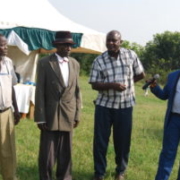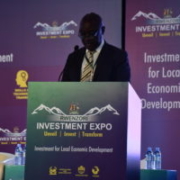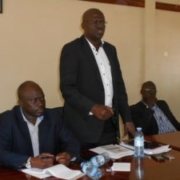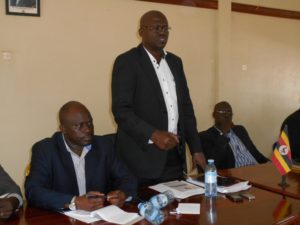Banyabindi to boycott 2021 elections due unfulfilled pledges
Over 10,000 members of the Banyabindi community, a minority tribe in Kasese district have resolved to boycott the 2021 general elections due to unfulfilled government pledges.
The Banyabindi were displaced, without compensation, during the establishment of Mubuku Irrigation Scheme, Queen Elizabeth National Park and Ibuga prisons between 1962 and 1980 by the then governments. They faced further displacement due to the two decades-long Rwenzururu rebellion which ended in 1982. The displacement continues to render them less productive.
Augustine Byabashaija, the Chairperson of the Banyabindi Cultural Trust, says the community has been advocating for resettlement and compensation of their land by government for many years now, and have received several promises in that direction, the latest being an 8th February, 2016 pledge by President Museveni at State House, Nakasero. To date, none of these promises has materialised.
Now, the frustrated Banyabindi have vowed not to support any leader who does not champion their issues.
“No land, no vote”
During their Annual General Assembly held at Muhokya primary school in Kasese district, under their umbrella organization, Banyabindi Cultural Development Trust (BACDET), participants resolved to shun elections should president Museveni fail to honour a 2016 pledge to resettle them.
“This time round, there is nothing for nothing. We have been patient with the government for all these years, in vain. We must get the land that the president promised us in broad daylight!” thundered Augustine Byabashaija, the Chairperson of the Banyabindi Cultural Trust at the weekend meeting.
The Prime Minister of the Bunyabindi cultural institution, Christopher Kitakakire, appealed to members to be resolute in demanding what is due to them.
“I appeal to you to be strong and demand for what is owed us. If others have had their land compensated, why not us?” Mr. Kitakakire asked.
For his part, the Banyabindi’s cultural leader, Mr. Elisha Mugisa Ateenyi, told the members in attendance that if they must vote, they should only elect candidates who can take their plight to heart, adding that their vote should not be taken for granted this time round.
Still no redress
In August last year, the Equal Opportunities Commission directed government to resettle members of the Banyabindi minority group living in displacement in and around Kasese district within twelve months of the date of the ruling. The ruling concluded a two-year-old petition to the commission by the Banyabindi over alleged marginalisation.
However, in an exclusive interview with theCooperator, Byabashaija was bitter that, to date, government has not given them redress despite the Commission’s ruling. Instead, he lamented, they have been shunned by government officials.
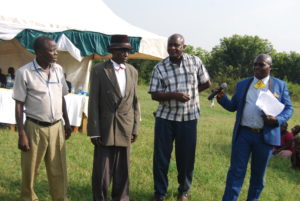
“You can imagine after winning the case before the Equal Opportunities Commission, none of the leaders want to associate with us,” he said.
“For this function, we invited the Minister for Presidency, who was to represent the Minister for Gender but nobody is here; not even the district leaders. This is an indication that we are on our own and therefore there is no need for us to vote.”
“Be patient”
However, speaking to theCooperator, the RDC Kasese Lt. Joe Walusimbi who was unable to attend the function, called upon the Banyabindi to be patient as government finds a way to resolve their issue, arguing that land compensation is a complex undertaking that cannot be hurried.
“If they boycott the elections and the person who promised them redress is voted out, who will honour their pledges?” he asked rhetorically, adding that the aggrieved minority should participate in the political process in order to get the political representation they have long been advocating for.
According to the 2014 Housing and Population census, the Banyabindi population stands at 16,000. However, the community’s own records put the current number at over 50,000, scattered in different districts in Western Uganda, with 20,000 of them allegedly landless and in need of urgent government intervention.
The post Banyabindi to boycott 2021 elections due unfulfilled pledges appeared first on The Cooperator News.

